The ARC Ends, a New EC Abuse Department Begins, and the SBC Building Goes Up for Sale: Jon Whitehead Breaks Down the Recent EC Meeting
The Southern Baptist Convention Executive Committee met this week and made several major decisions on issues important to Southern Baptists.
As our readers know, poor governance causes enormous waste and ineffectiveness in SBC life. Some outcomes of the EC meeting were positive. But others underscore how poor governance in the SBC—on matters like abuse “reform” initiatives, entity mission drift, and opposition to financial transparency—is hurting our collective gospel mission.
But if we’ve accepted lousy governance in the SBC for years, messengers can hardly expect things to improve. The chickens always come home to roost.
The End of the ARC and a New Abuse Department at the EC
The EC most likely wanted the headline of the week to be the creation of a “new abuse reform department” devoted to responding to sexual abuse.
This comes in response to the directive of the Messengers at the June 2024 Annual Meeting, which called for the EC to consider a “permanent home” for abuse response in the SBC. Thankfully, the EC has avoided the worst of the Abuse Response Implementation Task Force’s (ARITF) recommendations. In February of this year, ARITF attempted to form its own independent nonprofit, the Abuse Response Commission (ARC), to contract with the Convention. The proposal was rife with conflicts of interest and, if implemented, would increase legal risk and costs for the SBC.
Dr. Jeff Iorg, the new President and CEO of the EC, said he does not plan to use ARC in the future because it is “not authorized by the SBC.” As recorded by one reporter who was present, “In a follow-up question about what Iorg’s response on the Abuse Response Commission means for the future of the Ministry Check database,” Dr. Iorg responded by adding, “My proposal today doesn’t involve us on anything other than creating the department.”
The apparent end of the ARC proposal is a win for Southern Baptists. Shortly after the ARC formation announcement, CBL Advisory Board member Sam Webb warned about its deeply problematic structure and the outrageous plan to fund it in his article “The ERLC Treats Your Tithe Dollars Like Monopoly Money.”
As for the structure, Webb said, “The action of ARITF members to create their own organization so they can pursue their agenda ‘unencumbered [by the SBC]’ and ‘without [the] delay’ of SBC policies and procedures—not least of which is the SBC Business and Financial Plan—is an audacious act of hubris that should shock the conscience of Southern Baptists.”
As for the funding, trustees followed the lead of ERLC President Brent Leatherwood and voted to seed the ARC with $250,000. As Webb pointed out, this directly violates the SBC Business and Financial Plan Section 16g:
“These actors—Wester, Leatherwood, and every trustee at the ERLC who approved this—apparently believe they can transfer money to any cause and for any purpose without the required approval and necessary oversight. They are all complicit in this act of self-dealing to fund their own agenda in their own way—with accountability to the Messengers sacrificed on the altar of inconspicuous financial and political maneuvers.”
Again, Iorg’s refusal to bless or use the ARC is indeed a positive development for Southern Baptists.
But in creating a new permanent position for “abuse advocacy,” the SBC risks becoming a house divided. Many public universities have realized that their offices of “Diversity, Equity, and Inclusion” (DEI), in fact, undermine legitimate goals. The SBC still seems enamored with DEI-style offices. Like their public university counterparts, it is not clear that these permanent offices can ever solve the problems they are intended to solve.
$12 Million in Tithe Dollars and Counting: Spiraling Litigation Costs Subsume the SBC
The other major news of the meeting was about the cost of the Convention’s legal expenses. The EC announced that over $12 million has been spent investigating or defending legal claims related to sexual abuse. Conspicuously, the number included no amounts paid to alleged victims. Instead, nearly 1/4 of the $12 million was spent in payments for Guidepost Solutions, the consulting firm that authored the “bombshell” investigation of the SBCEC. While that report accused the EC of indifference, it ultimately failed to find any material wrongdoing or systemic “cover-up” of abuse. Certainly, nothing like the allegations in the tawdry letters authored and “leaked” by former ERLC president Russell Moore were ever corroborated.
The Guidepost report did accuse former SBC president Johnny Hunt of sexually abusing a woman in 2010. Hunt later acknowledged that there was impropriety but denied he had engaged in sexual abuse and further denied that he should’ve been included in the Guidepost report at all. He claims the Convention was looking for scapegoats and put him in the report unnecessarily. Hunt ultimately sued the SBC, the SBCEC, and Guidepost in a case that is still ongoing.
Some Southern Baptists might not know that, as part of the SBC’s “original contract with Guidepost, the SBC agreed to indemnify Guidepost for any litigation arising from the report.” In response to questions at the meeting, the EC confirmed it has agreed to pay to defend Guidepost against the lawsuit. The Convention has paid over $3 million to defend Guidepost against defamation claims.
While there were initial reports of a possible settlement during court-ordered mediation, current SBC President Clint Pressley has clarified that this is not happening: “Despite what you may be hearing, there is no settlement with Dr Johnny Hunt.”
This means that the SBC will remain on the hook for legal fees for both itself, the EC, and Guidepost as the lawsuit stretches on. As I said on X,
“I tend to think the Convention has the upper hand in the bitter end. But one of the biggest issues with this whole exercise has been the problem of people [on] high horses that like spending other people’s money.
Normally a settlement would be controlled by insurance, and we wouldn’t pay anything to Hunt. The problem is that we started insuring our investigators. And now Guidepost can demand we pay Hunt.”
And Now the SBC (Building) Is for Sale
After an executive session on “legal strategy,” EC Chairman Philip Robertson reported that the EC “approved an amended 2024-2025…operating budget of $11.8 million to meet the EC’s operational and legal expenses” and that “the executive committee authorized the president to execute a loan secured by the building and place the SBC building on the market.”
This is staggering news: The SBCEC is now looking to sell the Southern Baptist Convention’s office building in downtown Nashville.
Why? Because of the gross mismanagement from our leadership class in responding to what Joe Rigney has rightly called “emotional sabotage.” There was no “abuse crisis” at the Executive Committee, but wannabe leaders like Griffin Gulledge, Ronnie Parrot, and Grant Gaines happily destroyed generations of Baptist work to show they “cared.”
Astute observers quickly noticed the pairing: Legal expenses and the sale of the building. I remarked that it was “interesting that these things are together in the reporting” and asked, “Is the building being sold to wrap up Sills and/or Hunt?”
I went on to explain what this means for the SBC right now:
“In other words, they need a lot of cash. They expect the cost of the debt to be unsustainable on their current budget. So they’re borrowing against future sales proceeds of their biggest asset.
You probably only do that if there’s a short-fuse, deal-of-a-lifetime on the hook.
Defending Guidepost in these lawsuits is eating them alive; that seems to be the cash floodgate [the SBC EC] needs to close.
If they don’t have time or appetite for risk to go to trial, they need to settle or buy off Guidepost. And Hunt is probably cheaper.”
The SBC building is currently valued at roughly $30 million in the red-hot Nashville real estate market. But exiting valuable real estate is almost always a bad omen in SBC life. Baptists built the Lifeway campus downtown over 80 years. It took fewer than ten years to spend all the money from its sale. Now, there is nothing left to show for the investment of prior generations.
And Dr. Iorg, of course, famously presided over the sale of “Golden Gate” Seminary’s iconic property near the Golden Gate Bridge in San Francisco. Now, “Gateway” Seminary sits in a nondescript office park near Ontario, California’s airport runways.
The sale of the SBC’s office building could fund settlements and salaries in the short term, but is ultimately a sign of decline. The SBC is eating its seed corn, not building institutions that will grow for the next generation.
Secular Solutions Will Never Suffice for Southern Baptists
If, indeed, the sale of the building is related to Hunt, it underlines the high price of the Guidepost report, which now is costing far more to defend than it has ever benefited Baptists or real victims of abuse. Despite spending a generation’s worth of SBC offering plate money, the EC still has not made victim advocates happy.
When I asked Tom Ascol about his reaction to the news from the EC this week, he said, “All of this is an undeniable testimony to the failure of SBC denominational leaders over the last six years. If they didn’t see this coming, they are incompetent. If they did see it but did not try to stop it, they are cowardly. Either way, they have failed and should step down so that competent, courageous leaders can help guide us out through these treacherous waters.”
Ultimately, secular theories of justice and reparation cannot bring forgiveness but only more anger. Secular consultants who don’t understand biblical justice cannot provide Southern Baptists a clear path forward, and it was foolish to think they ever could. Even more foolish was lighting millions of dollars on fire over the last four years in pursuit of anything and everything but basic Baptist accountability.
As Josh Abbotoy and I argued in March of this year,
“The path forward for addressing sex abuse within the Southern Baptist Convention (SBC) is deceptively simple: Baptist accountability.
By Baptist accountability, we mean the accountability that naturally flows from the biblical and historically Baptistic principles that undergird the cooperation of autonomous local churches while preserving their direct accountability to God.
This Baptist accountability, as G.K. Chesterton might say, hasn’t been tested and found wanting; it has been deemed challenging and left unexplored.”
How much longer can the SBC afford to leave biblical and Baptist solutions left unexplored? If the building sale is any indication, the financial clock is ticking faster than ever.
While the end of the ARC is a sign that the worst plans are off the table, that does not mean the SBC has recovered. Another piece of bad news from the recent EC meeting was their refusal to move forward with 990-level financial reporting and transparency from our entities. South Carolina pastor Rhett Burns, who has been leading this effort, smartly spotted this jarring juxtaposition:
“In the same meeting, the @SBCExecComm voted to sell the SBC building, presumably to pay for indemnification for Guidepost, and to decline the 990 transparency motion, which would disclose legal expenditures.
Ordinary Southern Baptists are getting a bad deal from our leaders.”
The SBC leadership class has long scoffed at the wisdom of local church pastors and lay leaders. Instead of listening to those of us who rightly warned we were on an unsustainable path, they’ve eaten up what prior generations meant for us to preserve as an inheritance. Social justice public relations campaigns that try to make the SBC attractive to the woke and infamous have devoured the tithes of hard-working Baptists.
Southern Baptists, this approach will never work.
If we continue to just “wait and see,” the last thing we’ll see is the lights going out in downtown Nashville. Now, more than ever, it is essential for regular Southern Baptists to show up at annual meetings and steward this cooperative effort. I hope we’ll see you in Dallas.
-

Jon Whitehead is a lifelong Southern Baptist and the founding attorney of the Law Offices of Jonathan R. Whitehead LLC, located in Missouri. He is a trustee at the Ethics and Religious Liberty Commission of the SBC and serves on the Advisory Board for the The Center of Baptist Leadership.

